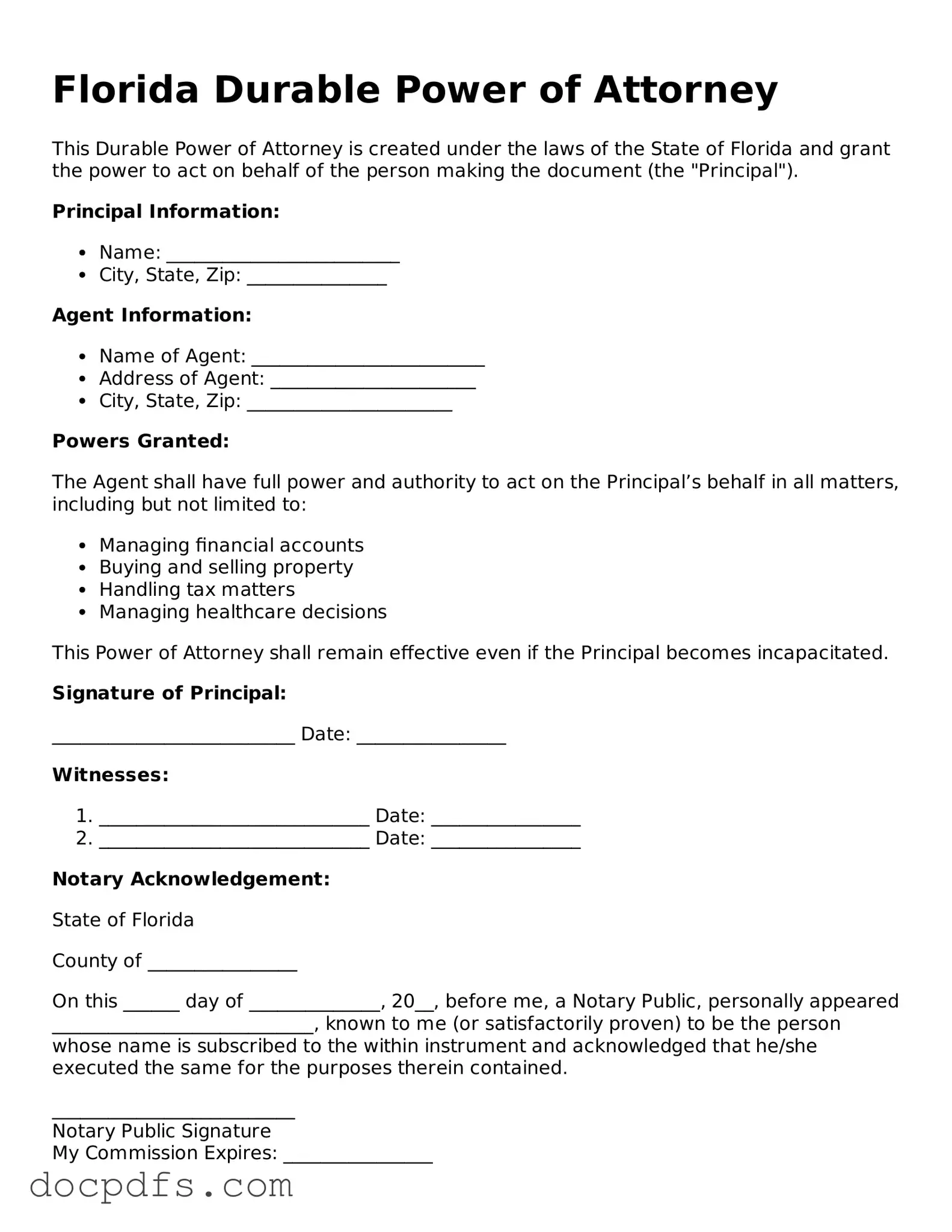Free Florida Durable Power of Attorney Form
A Florida Durable Power of Attorney form is a legal document that allows one person to grant another the authority to make decisions on their behalf, even if they become incapacitated. This form is essential for ensuring that your financial and medical matters are handled according to your wishes when you are unable to do so yourself. Understanding how to properly create and use this document can provide peace of mind for you and your loved ones.
Open Durable Power of Attorney Editor Now

Free Florida Durable Power of Attorney Form
Open Durable Power of Attorney Editor Now

Open Durable Power of Attorney Editor Now
or
⇓ Durable Power of Attorney
Finish this form the fast way
Complete Durable Power of Attorney online with a smooth editing experience.